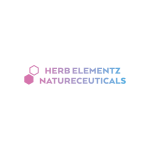
How to start your own cosmetic brand ?
The cosmetics industry is experiencing a boom, with consumers increasingly prioritizing self-care and personal grooming. The industry has seen steady growth over the past few years, and is expected to reach a global value of $758 billion by 2025. This presents an exciting opportunity for entrepreneurs looking to start their own cosmetics brand. In this article, we’ll explore the key steps involved in starting a cosmetics brand, from market research and branding to product development, manufacturing, marketing, and financial considerations.
I. Market Research
Market research is an essential first step in starting a cosmetics brand. By understanding the market, you can identify gaps and opportunities, and develop a brand that resonates with your target customers. There are several ways to conduct market research for your cosmetics brand, including:
- Analyzing competitors – Identify your direct and indirect competitors, and analyze their products, branding, and marketing strategies. Look for gaps in the market that you can fill with your own unique products and branding.
- Identifying target customers – Conduct surveys and focus groups to understand the needs, preferences, and buying behavior of your target customers. This will help you develop products and marketing strategies that resonate with them.
- Evaluating trends and consumer preferences – Stay up to date with the latest trends and consumer preferences in the cosmetics industry, such as natural and sustainable ingredients, inclusivity, and customization.
II. Branding
Branding is crucial in the cosmetics industry, where consumers are often drawn to products that align with their values and personal style. Developing a strong brand identity can help you differentiate your brand from competitors, build brand loyalty, and attract customers. Here are some key elements of brand identity:
- Logo design – Your logo should be visually appealing and memorable, and should reflect your brand’s values and personality.
- Packaging design – Your packaging should be eye-catching and functional, and should communicate the benefits and unique selling points of your products.
- Brand messaging – Your brand messaging should be consistent across all channels, and should communicate your brand’s story, values, and benefits to customers.
III. Product Development
In the cosmetics industry, quality products are essential to building a successful brand. Here are some key steps involved in developing your own cosmetics products:
- Research and development – Conduct thorough research on ingredients, custom formulations, and regulations, and develop prototypes for testing.
- Ingredient sourcing – Source high-quality, sustainable, and ethical ingredients that align with your brand’s values and meet regulatory requirements.
- Testing and refining – Conduct extensive testing and refinement to ensure that your products meet quality and safety standards, and that they deliver the promised benefits to customers.
IV. Manufacturing and Production
Once you have developed your products, you’ll need to find a manufacturing partner to produce them at scale. There are several manufacturing options available, including in-house manufacturing, contract manufacturing, and private label manufacturing. When choosing a manufacturer, consider the following factors:
- Cost – Find a manufacturer that offers competitive pricing and can work within your budget.
- Quality – Ensure that the manufacturer has strict quality control measures in place to maintain the quality and consistency of your products.
- Production capacity – Choose a manufacturer that can handle your current and future production needs.
V. Marketing and Sales
Effective marketing is crucial for building brand awareness, attracting customers, and driving sales in the cosmetics industry. Here are some key strategies for promoting and selling your products:
- Social media marketing – Leverage social media platforms such as Instagram, Facebook, and TikTok to showcase your products, engage with customers, and build a community around your brand.
- Influencer collaborations – Partner with influencers and beauty bloggers to promote your products to their followers, and leverage their credibility and influence to build trust with potential customers.
- E-commerce platforms – Sell your products through e-commerce platforms such as Amazon, Shopify, and Nykaa, which offer a convenient and accessible way for customers to purchase your products.
VI. Financial Considerations
Starting a cosmetics brand can be expensive, and it’s important to have a solid financial plan in place. Here are some key costs to consider:
- Product development and manufacturing costs – This includes the cost of ingredients, packaging, manufacturing, and quality control.
- Marketing and advertising costs – This includes the cost of social media advertising, influencer collaborations, and other marketing initiatives.
- Overhead costs – This includes rent, utilities, insurance, and other expenses associated with running a business.
There are several ways to finance your cosmetics brand, including:
- Bootstrapping – Using personal savings or funds from friends and family to finance your business.
- Crowdfunding – Raising funds from a large group of people through crowdfunding platforms such as Kickstarter or Indiegogo.
Small business loans – Obtaining a loan from a bank or other financial institution.
Conclusion:
Starting a cosmetics brand can be a challenging but rewarding endeavor. By conducting thorough market research, developing a strong brand identity, creating quality products, implementing effective marketing strategies, and having a solid financial plan, you can increase your chances of success in the competitive cosmetics industry. Remember to stay flexible and adapt to changes in the market, and don’t be afraid to seek advice and guidance from experts in the industry. With perseverance and dedication, you can turn your passion for beauty and skincare into a thriving business.


